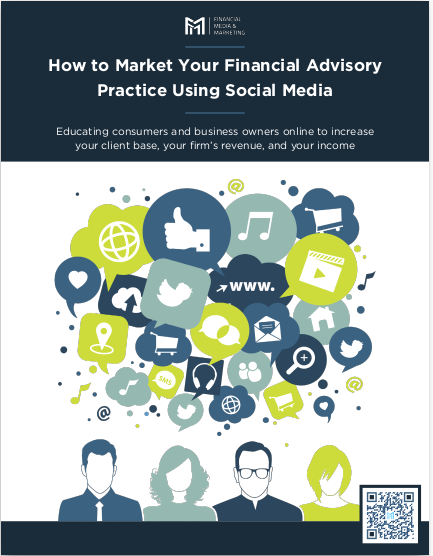Creating an Effective Insurance Agent Website
Key Takeaways:
- Your insurance agent website serves as a virtual office, making a lasting first impression and providing valuable information to potential clients 24/7.
- Incorporating elements like user-friendly design, clear messaging, professional imagery, and lead capture forms can help maximize the effectiveness of your website and drive client engagement and conversions.
In today’s digital age, your website is often the first point of contact potential clients have with your insurance agency. A well-designed and user-friendly website is essential for establishing a strong online presence, building trust, and attracting and retaining clients. In this article, we will explore the critical elements of creating an effective insurance agent website, providing you with actionable insights to help you design and optimize a website that stands out in the competitive insurance industry.
The Importance of Your Insurance Agent Website
Your website serves as your virtual office in the digital realm. It’s a place where clients and prospects can learn more about you, your services, and how you can help them protect their assets and secure their financial future. Here’s why your insurance agent website matters:
1. First Impressions Count
In many cases, your website is the first interaction potential clients have with your agency. A professional and well-organized website can make a positive first impression and instill confidence in your services.
2. Information Hub
Your website is where clients and prospects can find comprehensive information about the types of insurance you offer, your expertise, and the value you provide. It’s a valuable resource for educating your audience.
3. 24/7 Accessibility
Unlike a physical office, your website is accessible 24/7. Clients can visit your site, request information, or even purchase insurance policies at their convenience, making it a valuable asset for client acquisition and retention.
Key Elements of an Effective Insurance Agent Website
Now, let’s delve into the essential elements that should be incorporated into your insurance agent website to ensure its effectiveness.
1. User-Friendly Design
Simplicity and Intuitiveness
Your website should be easy to navigate and understand. Use a clean and intuitive design with a clear menu structure that guides visitors to essential pages like services, about you, and contact information.
Mobile Responsiveness
In an era of mobile browsing, it’s crucial that your website is responsive, meaning it adapts seamlessly to various screen sizes. Mobile-friendly design is not only user-friendly but also affects your search engine rankings.
2. Clear and Compelling Messaging
Value Proposition
Communicate your unique value proposition (UVP) prominently on your homepage. Explain what makes your agency special and why clients should choose you over competitors. Be concise and compelling in your messaging.
Informative Content
Provide informative content that helps visitors understand insurance concepts, coverage options, and the importance of proper insurance planning. Blog posts, FAQs, and educational resources can establish you as a knowledgeable expert.
3. Professional Imagery
High-Quality Images and Videos
Utilize high-quality images and videos that convey professionalism and trustworthiness. Consider incorporating images of your team, office, and satisfied clients (with permission) to create a personal connection.
4. Contact Information and Calls to Action (CTAs)
Easy Contact Options
Make it simple for visitors to reach out to you. Display your contact information prominently on every page, including phone numbers, email addresses, and a contact form.
CTAs for Lead Generation
Include clear calls to action (CTAs) throughout your website, encouraging visitors to take specific actions. CTAs can include “Get a Quote,” “Schedule a Consultation,” or “Request Information.”
5. About You
Establish Trust
The “About You” page is an opportunity to introduce yourself and your team. Share your qualifications, experience, and a bit about your personal and professional journey. This humanizes your agency and builds trust with visitors.
6. Services Offered
Comprehensive Coverage Information
Dedicate a section of your website to detailing the insurance services you offer. Explain the various types of insurance, coverage options, and the benefits of each. Provide examples of real-world scenarios to help clients understand their needs.
7. Client Testimonials and Success Stories
Social Proof
Display client testimonials and success stories on your website to provide social proof of your expertise and excellent service. Real-life examples of how you’ve helped clients can resonate strongly with prospects.
8. FAQs and Resources
Educational Content
Create a section with frequently asked questions (FAQs) and valuable resources. Address common insurance-related queries and offer downloadable guides, brochures, or checklists.
9. Blog and Content Hub
Position as an Expert
Maintain a blog or content hub where you regularly publish articles on insurance-related topics. This not only provides valuable information to visitors but also positions you as an industry expert.
10. Contact Form and Lead Capture
Convenient Inquiry Process
Incorporate a contact form that allows visitors to submit inquiries or requests for quotes directly from your website. Ensure that the form is user-friendly and captures essential information.
11. Security and Privacy
Trust and Data Protection
Display trust badges and information about the security measures you have in place to protect visitors’ data. Assure them that their information will be handled securely and in accordance with privacy regulations.
SEO and Optimization
To ensure that your insurance agent website reaches a broader audience, it’s essential to optimize it for search engines (SEO). Here are some key SEO considerations:
1. Keyword Research
Perform keyword research to identify the search terms potential clients use when looking for insurance services. Incorporate relevant keywords into your website’s content.
2. On-Page SEO
Optimize each page of your website for on-page SEO elements, including meta titles, meta descriptions, headers, and image alt text. Ensure that your website loads quickly and is mobile-responsive.
3. Local SEO
If you serve a specific geographic area, focus on local SEO. Claim your Google My Business listing, encourage client reviews, and use local keywords to improve your visibility in local search results.
4. Content Strategy
Develop a content strategy that includes regular updates to your blog or content hub. Create informative, high-quality content that addresses common insurance questions and concerns.
Analytics and Measurement
Once your website is live, it’s crucial to track its performance using web analytics tools such as Google Analytics. Key performance indicators (KPIs) to monitor include:
- Website traffic and sources
- Conversion rates (inquiries, quote requests)
- Click-through rates (CTRs) for CTAs
- Bounce rates (percentage of visitors who leave after viewing one page)
Analyzing these metrics will help you refine your website’s effectiveness and make data-driven improvements.
Conclusion
Creating an effective insurance agent website is a critical step in building your online presence and attracting clients. Your website should serve as a user-friendly, informative, and trustworthy resource for potential clients seeking insurance information and services. By focusing on design, clear messaging, valuable content, and SEO optimization, you can ensure that your website stands out in the competitive insurance industry and helps you achieve your business goals. Remember that your website is a dynamic asset that requires regular updates and improvements to keep it aligned with your agency’s evolving needs and client expectations.
Contact Information:
Email: [email protected]
Phone: 8777993433
Bio:
Stan Collins is a Marketing Specialist based in Arizona that focuses primarily on online branding and digital marketing. In addition to helping financial professionals, real estate agents, and other business professionals generate leads and perfect their online identities, Stan Collins also writes educational content about marketing.










